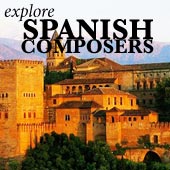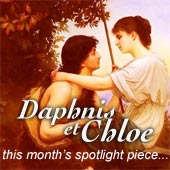Interview with Alison Lowell
Interview with Alison Lowell, Principal Oboist of the KwaZulu-Natal Philharmonic Orchestra.
1. So... how did you start playing the oboe?
I began playing the oboe because I was jealous of my older brother's saxophone lessons. My parents were both music majors for a time (flute and bassoon), and felt that if I chose a woodwind, they could assist me the best.
Considering I still struggle to get a sound by blowing across a bottle despite frequent attempts, the flute proved all but impossible. I didn't want to play the same instrument as my brother and my parents both insisted that I not pick the bassoon due to the frustration of making reeds for the instrument (little did I know!), or the clarinet because it was my mom's least favorite of the winds.
Well, oboe it was! My first time hearing an oboe was Paul McCandless's beautiful improvisations with the jazz group Oregon from their album "Out of The Woods" from 1975. I have been hooked ever since.
2. What are some of the most exciting developments in new music for you?
I think new music ensembles are beginning to break away from the set format of the Pierrot Lunaire instrumentation (flute, clarinet, violin, cello and piano) and are utilizing the other family members like English horn and oboe d'amore more frequently. Composers are embracing the double reed family as equals when it comes to solo works and performers are rising to the challenge.
3. What kind of things do you like to talk about and teach in your lectures and masterclasses?
For me the most important message to convey is enthusiasm about new music. It is all too easy for music students to lose themselves in the endless battle of perfecting orchestral excerpts.
The most exciting oboists to me may very well hold orchestral positions, but most importantly are producing new content and transcriptions for the oboe. There are endless ways for an oboist just starting out to create a niche for themselves.
4. Describe your theoretical "perfect performance" (venue, audience, pieces performed etc.)
I used to think that the perfect performance took place outside of the traditional music hall, but to me the most important elements are quality visual and audio access. Creating a non-stuffy atmosphere is critical, but I am not convinced that playing in a bar or a subway is the best way to create this environment.
My perfect venue is one in which the audience is fully engaged and doesn't need to compete with outside noises just to hear what is going on. There is something captivating about being part of a large crowd and being able to hear a pin drop; I want my audience's complete attention. This is only accomplished, of course, through innovative programming that can hold an audience's interest.
A concert of new music, preferably in a chamber context, would be my ideal program, especially one composed without an intermission. I love being able to couple very recent works with classics like Schoenberg's Chamber Symphony No. 1.
5. Can you tell us about the Loboe Project? What new musical and professional for avenues has it opened up for you?
The Loboe Project started as a way to document research, performances and observations about my extended-range oboe (descends one half step lower than a typical oboe).
Facing the most limited range of the standard woodwinds, this small increase benefits the oboe, both in terms of transcriptions and new works. The additional length of the instrument creates a wider harmonic range and more fluidity in the high register.
Alex Klein, former principal oboist of the Chicago Symphony Orchestra, created this instrument through his collaboration with the instrument maker F. Lorée in Paris. He put out some brilliant recordings featuring this instrument's range and sound, but I felt that even more could be done.
I make an effort to let any oboist I meet try it out; I truly feel that this is the direction the instrument should be headed. It has been an amazing way to connect with other oboists, but especially helpful in collaborating with composers.
A good composer will never pass up the opportunity to explore a new sound possibility on an instrument, so the Loboe has been a source of interest ever since I acquired it.
Comparatively, South Africa premieres far fewer works than in the United States, but it also makes for an incredible platform to showcase new works that feature this oboe. The Loboe has motivated me to rethink the possibilities of transcriptions, especially baroque violin music, for the oboe. It has also allowed me to participate in performances that embrace unusual instrumentation, such as a chamber music tour of new music, including works for two wrenchophones.
6. Who is/are your favorite composer(s), and why?
Wolfgang Rihm is among my favorite living composers. I had a chance to study and perform the oboe/piano version of his Musik fur Oboe und Orchester a few years ago; it was incredibly inspiring both musically and technically. He managed to utilize the entire range of the instrument in an incredibly beautiful way yet demanded every last bit of concentration from the player.
His use of English horn in his epic 50 minute orchestral work Jagden und Formen is captivating. Again, the demand for full range-prowess is evident but he breaks free of the typical treatment of the instrument as the mostly lyrical voice. The English horn enters the piece about fifteen minutes in and is relentless until the end; this is a part to be reckoned with!
I must also include another living composer, David Plylar, who is perhaps the most active champion of the Loboe (and also my husband). His impressive commitment to exploring the musical possibilities of all instruments has resulted in a number of incredible works and transcriptions, particularly those for the oboe.
Early on, I challenged David to write a work for oboe and piano that would, among other things, utilize flutter tongue (a newly conquered skill I had achieved at the time!). It is not often that a composer can showcase an extended-technique in such an elegant and effective manner. The piece, entitled Fractured Colloquy, ignites the listener's imagination through a fantastic use of flutter-tongue that starts from nothing and crescendos into the piano's entrance.
7. Any tips for budding oboists?
The oboe is so much more than the duck who gets eaten within the first few pages of Prokofiev's "Peter and the Wolf"; while beautiful as the lyrical/love voice in the repertoire, there is no technical reason why the oboe cannot handle the typical levels of technicality of flute and clarinet repertoire.
There are not many orchestral positions in the world, though sometimes the most interesting and important musical achievements are from those stepping out from behind the orchestral music stand and taking matters into their own hands; inspiring oboists are combining their formal training in areas such as jazz, theatre, public speaking and the visual arts.
Few relationships will prove as meaningful as those forged with composers, especially early in one's studies. Students should push their teachers to listen to new repertoire, if they do not already, as well as explore the world of transcriptions for their instrument.
Thanks, Alison!
***z-above-returnlinks.html***
If you like my site, please click "Like"... thanks!


